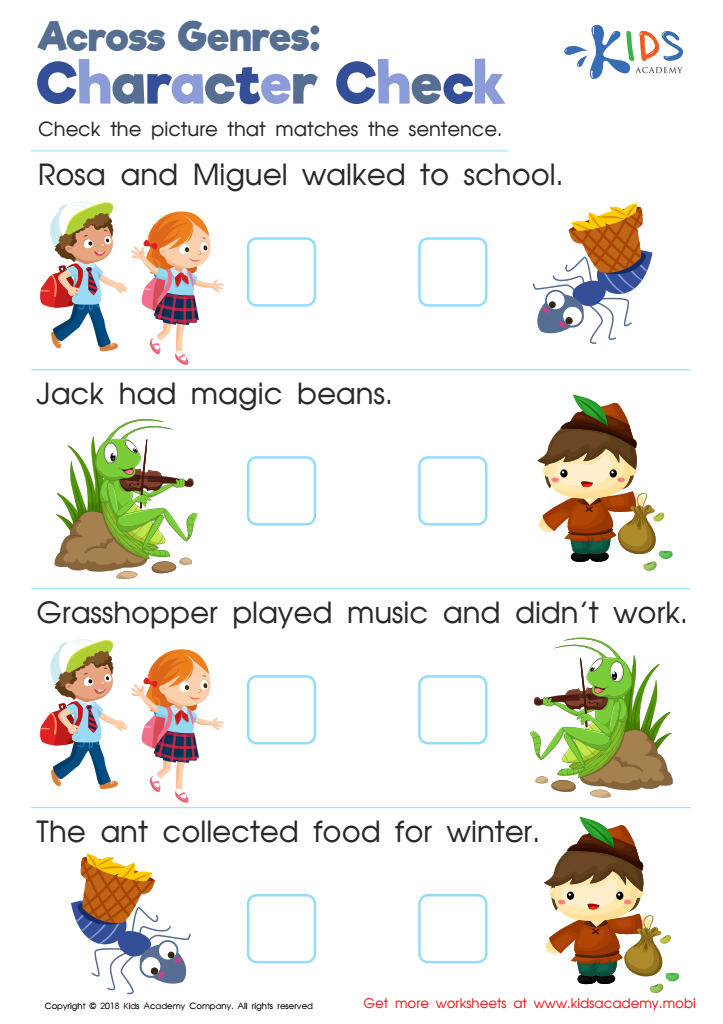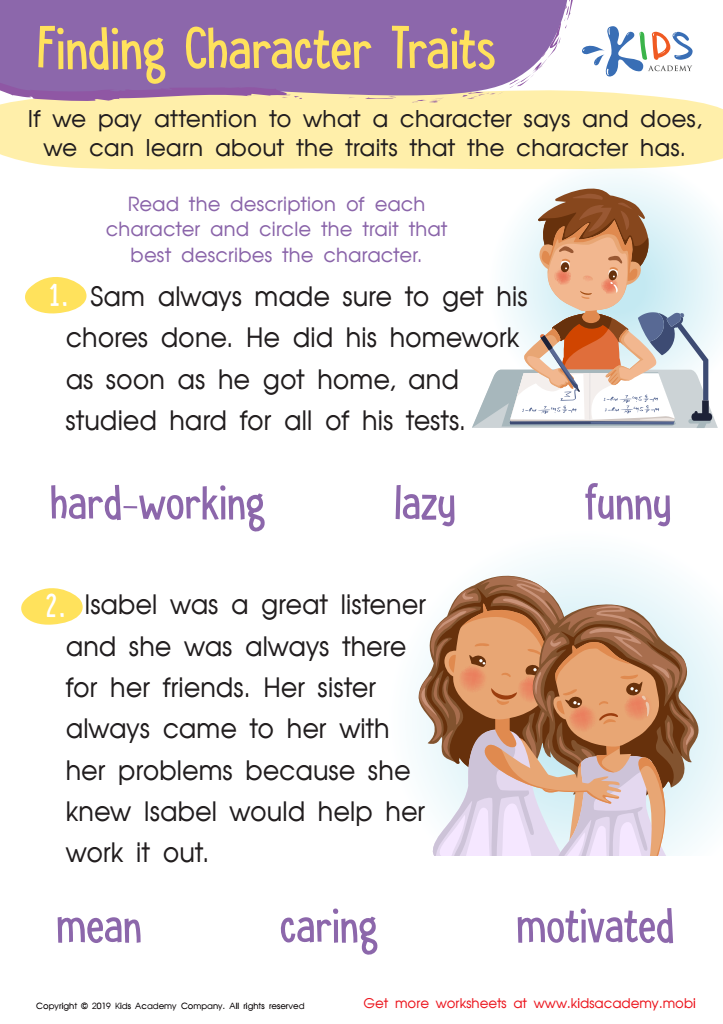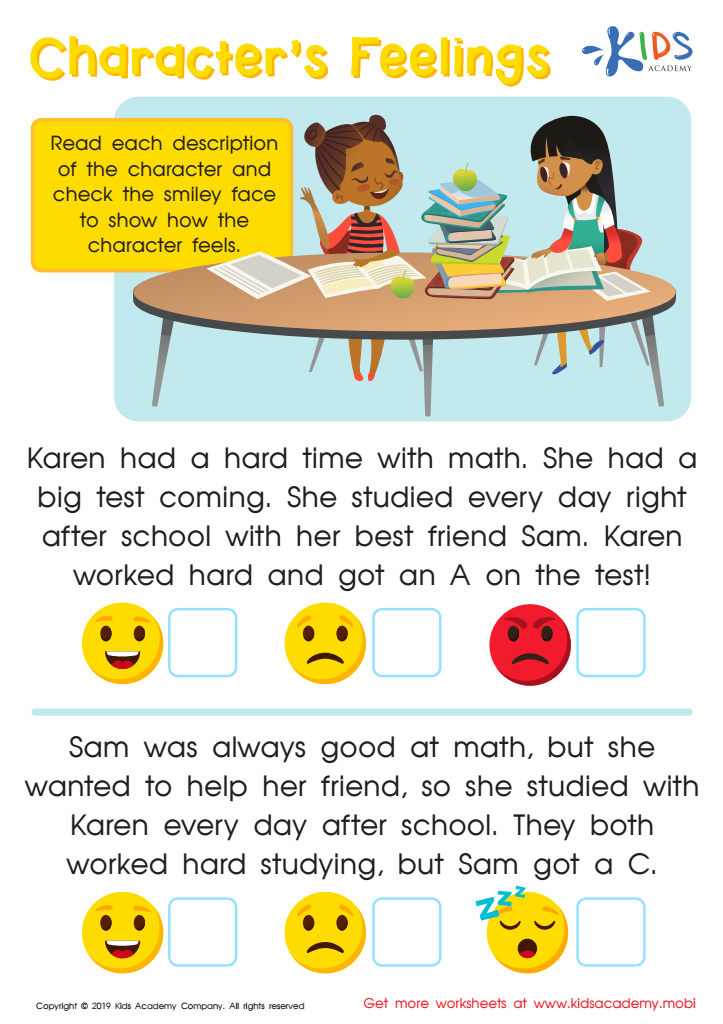Character analysis Reading Fiction Worksheets for Ages 7-8
3 filtered results
-
From - To
Unlock the power of literary exploration with our "Character Analysis Reading Fiction Worksheets for Ages 7-8." Specially designed for young readers, these engaging worksheets nurture critical thinking and comprehension skills. Through fun activities, kids embark on a journey to understand and analyze characters in heartwarming and exciting stories. Ideal for home or classroom, these tools guide students to delve deep into motivations, traits, and development, fostering a love for reading while building essential academic skills. Perfect for 2nd and 3rd graders, our worksheets make character analysis both educational and enjoyable. Ignite imagination and advance learning today!


Across Genres: Character Check Worksheet


Finding Character Traits Worksheet


Character’s Feelings Worksheet
Parents and teachers should care about character analysis when children aged 7-8 read fiction because it cultivates essential cognitive and emotional skills that contribute to their overall development. At this age, children's comprehension and empathy are rapidly growing, making it an ideal time to introduce more sophisticated reading practices.
Character analysis encourages children to dive deeper into the stories they read by understanding characters' motivations, feelings, and behaviors. This promotes critical thinking, as children learn to draw inferences and make predictions based on textual evidence. By exploring the complexities of different characters, children enhance their reasoning abilities and logical thinking, which are transferable skills across various subjects.
Moreover, character analysis fosters empathy and emotional intelligence. When children step into a character's shoes and experience different perspectives, they better understand and appreciate diverse viewpoints and emotions. This practice helps them build stronger, more empathetic social relationships in real life.
Lastly, discussing characters and their development in a story makes reading an active, engaging process. It encourages discussion and comprehension, transforming reading from a passive activity into an interactive experience. In summary, investing in character analysis for early readers equips children with vital analytical and emotional tools, enriching their academic and personal growth.

 Assign to My Students
Assign to My Students







.jpg)












